 Politics
Politics



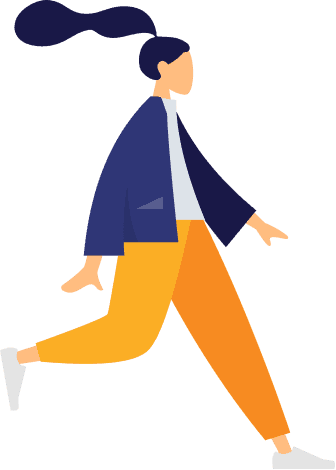
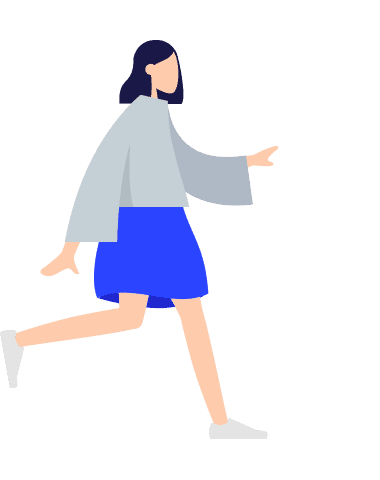


E. Casey
Dreams are today's answers to tomorrow's questions.


P. Drucker
The best way to predict the future is to create it.


L. Brown
Personal development is the key to overcoming your limitations.


N. Hill
A man can achieve anything as long as he believes in himself.
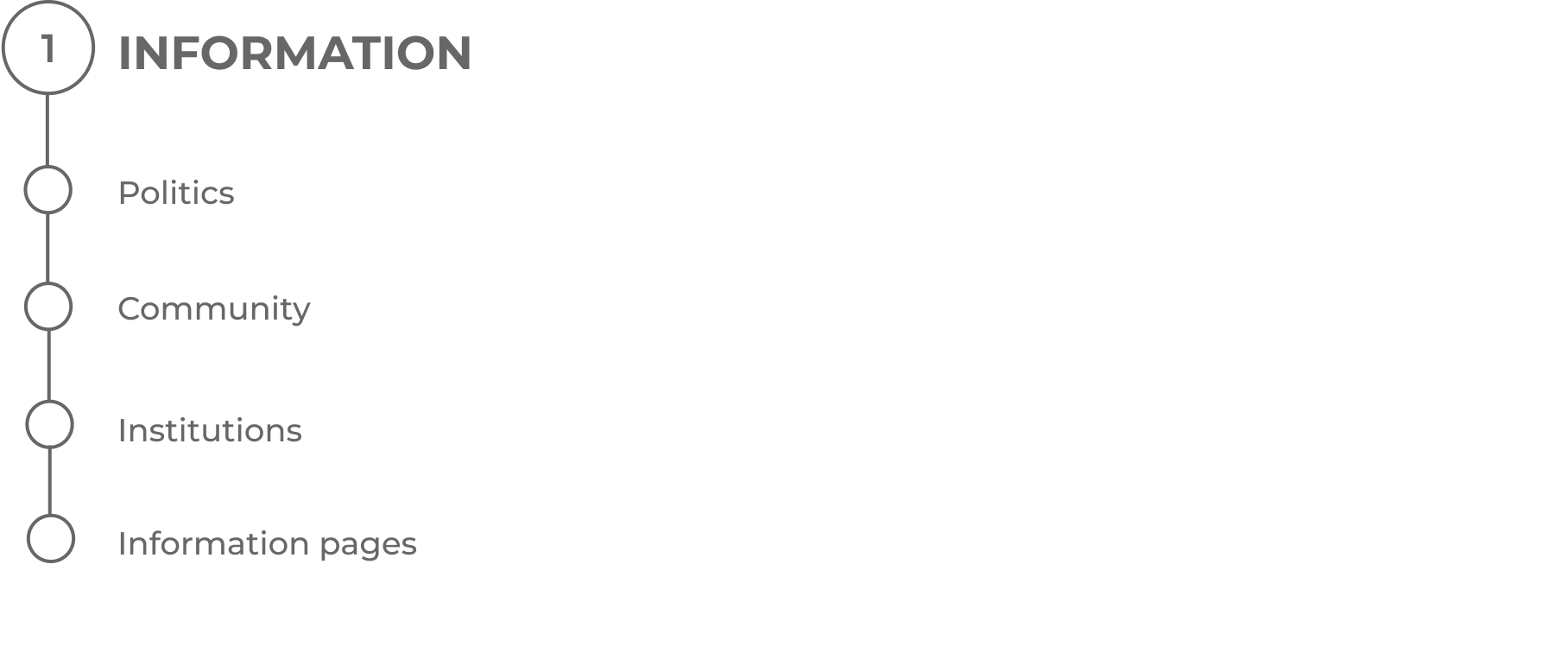
More about civic education in our lives - Slovenia
 Politics
Politics
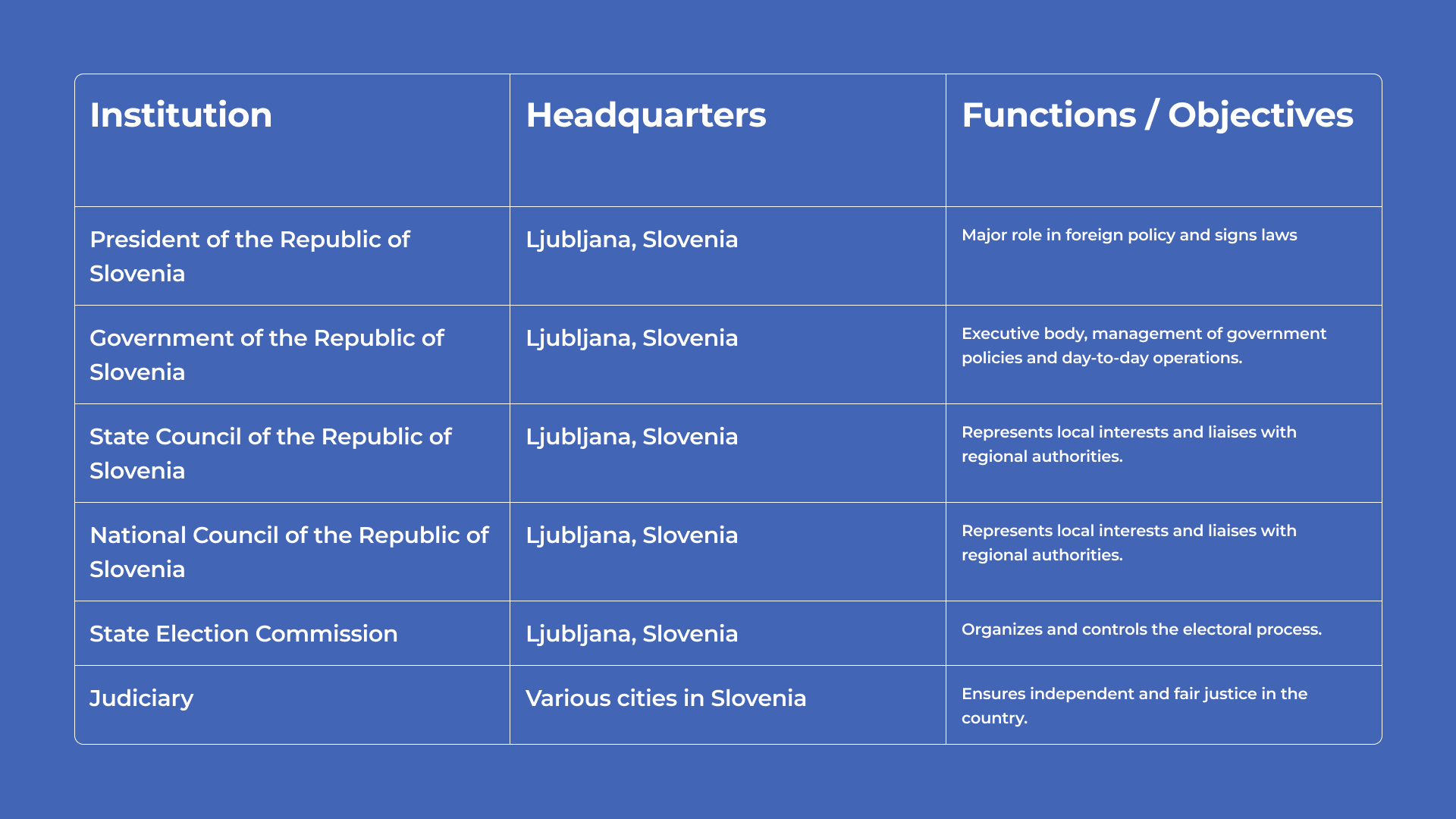
 Society
Society
 1. Ethnic and Cultural Diversity: Slovenia is a relatively small country, but it has a diverse population with different ethnic and cultural identities. Slovenians are the main ethnic group, but there are also other nationalities.
1. Ethnic and Cultural Diversity: Slovenia is a relatively small country, but it has a diverse population with different ethnic and cultural identities. Slovenians are the main ethnic group, but there are also other nationalities. 





 Institutions
Institutions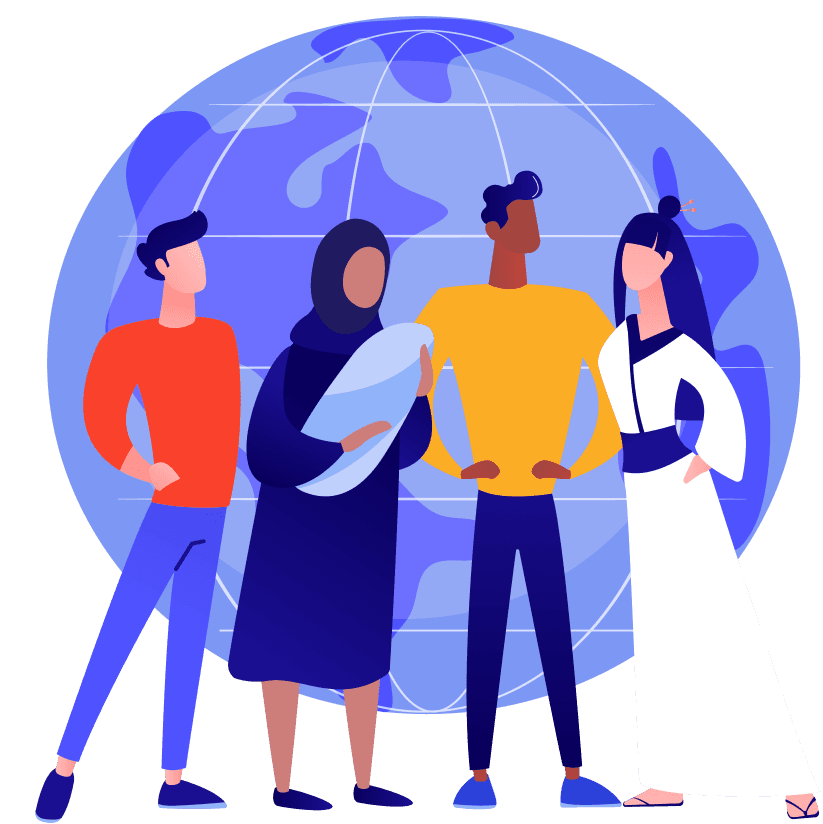






 More
More


 Information Pages
Information Pages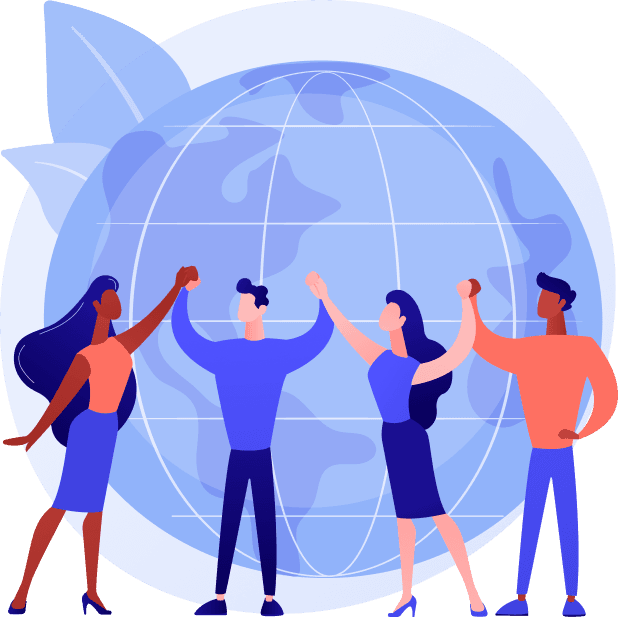

1. Elections: Citizens of Slovenia have the right to participate in parliamentary, presidential, and local elections. Elections are a key moment for civic participation and an opportunity to express political choices.
2. Civil Organizations: Many civil organizations address social, economic, and environmental issues. These organizations provide a platform for civic participation and engagement in addressing important issues.
3. Public Consultations: Authorities in Slovenia often organize public consultations on various issues, such as the economy, ecology, education, etc. This allows citizens to express their opinions and suggestions.
4. Social Movements and Protests: Citizens of Slovenia have engaged in various social movements and protests focusing on different problems and issues. These actions often spark public debate and influence policies.
5. Media and Online Participation: Citizens can express their opinions and share information through media and social networks. This allows society to be informed and actively participate in discussions.
Civic participation plays an important role in the development of a democratic society in Slovenia, giving a voice to citizens and supporting their involvement in decision-making processes.
 Test
Test






 Civic Education Lessons
Civic Education Lessons
Several characteristics of civic education in the country:






 Youth Engagement in Action
Youth Engagement in Action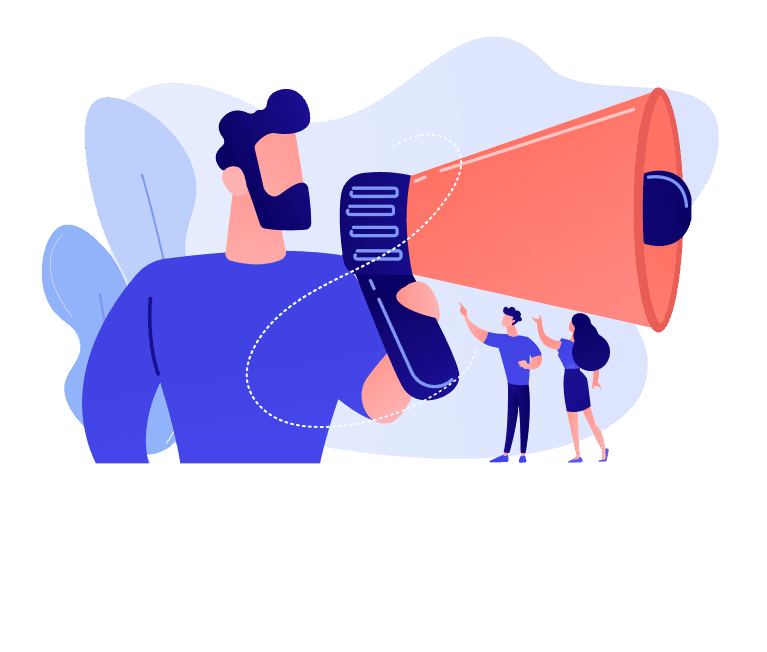





 Benefits of Youth Engagement
Benefits of Youth Engagement

1. Personal and Professional Development: Participation in youth organizations, initiatives, and projects allows young people to develop communication skills, leadership qualities, problem-solving, and teamwork. These skills are valuable in both their personal and professional lives.
2. Civic Responsibility and Activity: Youth participation in public initiatives teaches them about active societal participation. They understand what it means to be a responsible citizen, engage in important issues, and participate in public decisions.
3. Increased Confidence: Young people engaged in public initiatives often experience increased confidence and a sense of achievement. This can have a positive effect on their overall well-being.
4. Social Relationships and Networks: Youth engagement allows young people to meet and work with people from different fields and backgrounds. This helps create valuable social networks and contacts.
5. Societal Change: Young people are often drivers of change in society. Their engagement can improve education, the environment, culture, and social services.
6. Diversity of Perspectives: Youth represents a diverse group with different perspectives and ideas. Their engagement contributes to a broader dialogue and exchange of ideas, enriching society.
 Opportunities for Youth Engagement
Opportunities for Youth Engagement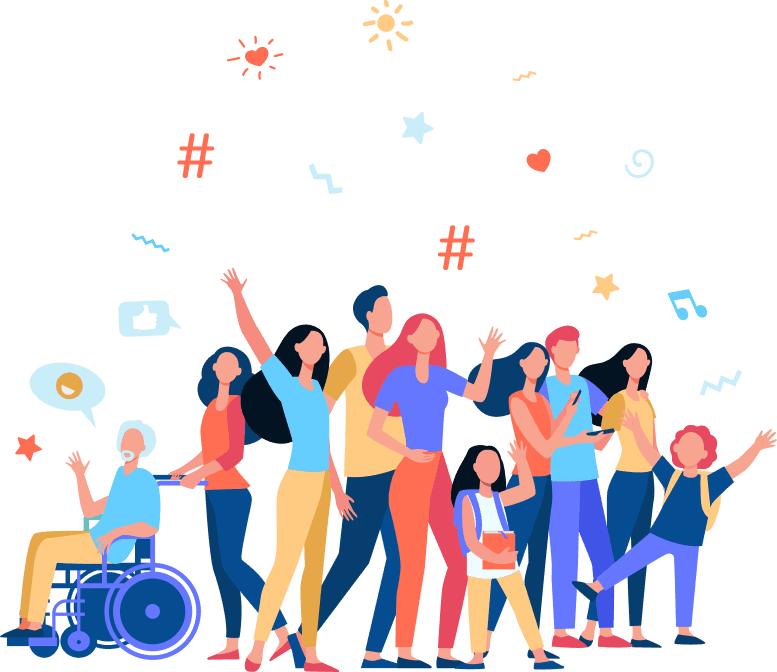

1. Youth Organizations: Slovenia has numerous youth organizations that offer opportunities for young people to engage in various initiatives, projects, and campaigns related to education, culture, the environment, health, and more.
2. Youth Clubs and Centers: Youth clubs and centers provide spaces where young people can meet, exchange ideas, participate in educational events, and work on community projects.
3. Youth Councils: In many cities and communities, youth councils allow young people to engage in discussions on important issues and present their ideas to local authorities.
4. Educational Programs and Courses: Youth organizations and schools offer diverse educational programs and courses that develop the skills of young people in areas such as leadership, entrepreneurship, communication, and more.

 Media Literacy and Fake News Recognition
Media Literacy and Fake News Recognition
1. Educational Programs: Educational institutions and organizations can develop special programs and lessons to develop media literacy. These programs may cover critical thinking, source analysis, and information analysis.
2. Training and Seminars: Youth centers, universities, media organizations, and other institutions can organize training and seminars to provide youth with practical tools for recognizing fake news.
3. Media Campaigns: Organizations and initiatives in Bulgaria can conduct media campaigns to raise awareness about the importance of media literacy and fake news recognition.

4. Online Resources: Creating online resources such as websites, blogs, or video tutorials can be a useful way to reach youth and provide information on media literacy issues.
5. Collaboration with Media: Collaboration between media organizations and educational institutions can contribute to a better understanding of the processes behind journalistic work and the recognition of reliable news sources.6. Critical Thinking in the Curriculum: Integrating critical thinking skills and fake news recognition into curricula can help students become more vigilant and informed citizens.

 Assessment of the Impact of Youth Activity
Assessment of the Impact of Youth Activity
 Test
Test






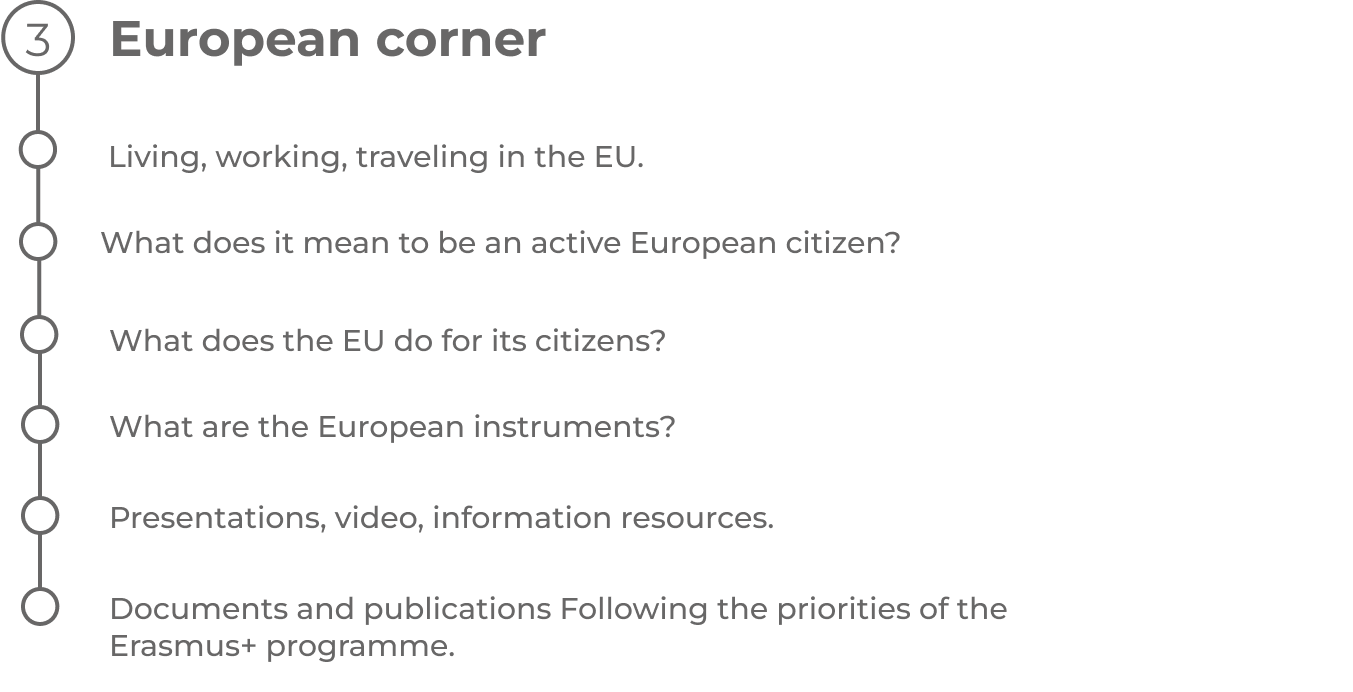


Slovenia is a beautiful country in the European Union with many advantages for living, working, and traveling. Here are some of them:
1. Freedom of Movement: Being part of the European Union, citizens of Slovenia and other member states have the right to free movement and work in all EU countries. This means you can choose from various job and educational opportunities within the Union.
2. Euro as Currency: Slovenia uses the euro as its currency. This facilitates travel and trade within the Eurozone, avoiding currency exchange costs.
3. Stability and Infrastructure: The country has a stable and developed economy and well-developed infrastructure, improving the quality of life.
4. Beautiful Nature: Slovenia has gorgeous mountains, lakes, and forests. This provides many recreation opportunities.
5. Cultural and Historical Heritage: The country has a rich history and culture, meaning many landmarks, museums, and traditions exist to explore.
6. Education: Slovenia offers quality education at all levels, from elementary to university. Citizens also have the opportunity to study and work in various educational institutions in other EU countries.
Healthcare: Healthcare in Slovenia is well-organized and accessible. Citizens have the right to basic medical services and treatment.

 What Does It Mean to Be an Active European Citizen?
What Does It Mean to Be an Active European Citizen?
1. Voting in Elections: Participate in elections for the European Parliament, as well as local elections, to exercise your right to vote and influence decision-making.
2. Educational Events: Attend seminars, conferences, and educational events to learn more about the European Union, its institutions, and policies.
3. Participation in Public Consultations: Stay informed about consultations and discussions on the EU and national policies and provide your viewpoints and suggestions.
4. European Voluntary Projects: Join voluntary projects and initiatives that promote cultural exchange, environmental awareness, and social integration.

5. Support European Initiatives: Participate in campaigns and petitions supporting specific European initiatives and values that concern you.
6. Participation in European Cultural Events: Join cultural events related to different EU countries to learn more about their traditions and customs.
7. Dissemination of Information: Share information about the EU and its benefits among your friends and family to raise awareness.

 What Does the EU Do for Its Citizens?
What Does the EU Do for Its Citizens?

1. Freedom of Movement and Work: Citizens of Slovenia have the right to free movement and work in all EU member states. This means they can seek employment, work, and live in other member states without special permits.
2. Financial Support: Citizens of Slovenia benefit from financial support from the EU through structural and investment funds. These funds support economic development, infrastructure projects, education, and other areas.
,4.Health and Social Issues: The EU supports cooperation between member states in the fields of healthcare, social security, andsocialintegration.Slovenian citizens have the right to access...
5.Security and Rights:TheEU aims to ensure the security and protection of its citizens through cooperation in the field of justice, police cooperation, and the fight against terrorism.Slovenian citizens have the right to a fair judicial investigation, and human rights are respected and protected.
SocialPrograms: The EU supports various social programs aimed at assisting vulnerable groups in society, including the unemployed, children, the elderly, and others.



Youth activity involves participation in various initiatives, programs, and activities aimed at supporting the development and participation of young people in society. This activity can have numerous positive impacts in various areas such as:
1. Structural and Investment Funds (SIF): These funds provide financing for various projects that improve economic and social development in EU regions. This includes infrastructure projects, education, scientific research, and more.
2. Horizon 2020 Program: This scientific research and innovation program funds projects focused on developing scientific knowledge, technological progress, and innovation.
3. European Social Fund (ESF): This fund supports projects and initiatives that improve employment, training, education, and social inclusion in the EU
4. Erasmus+ Program: This program supports educational, training, and youth projects encouraging mobility and intercultural exchange among EU youth.
5. EU Health Program: This program supports cooperation in public health and facilitates the exchange of information and best practices.
6. European Judicial Cooperation Structure (EJCS): This is a framework for cooperation between EU member states in justice, where information is shared and common strategies are created.
7. European External Action Service (EEAS): The EU's diplomatic service supports the Union's foreign policy and activities.

 Documents and Publications Following the Priorities of the "Erasmus+" Program.
Documents and Publications Following the Priorities of the "Erasmus+" Program.






 Test
Test

